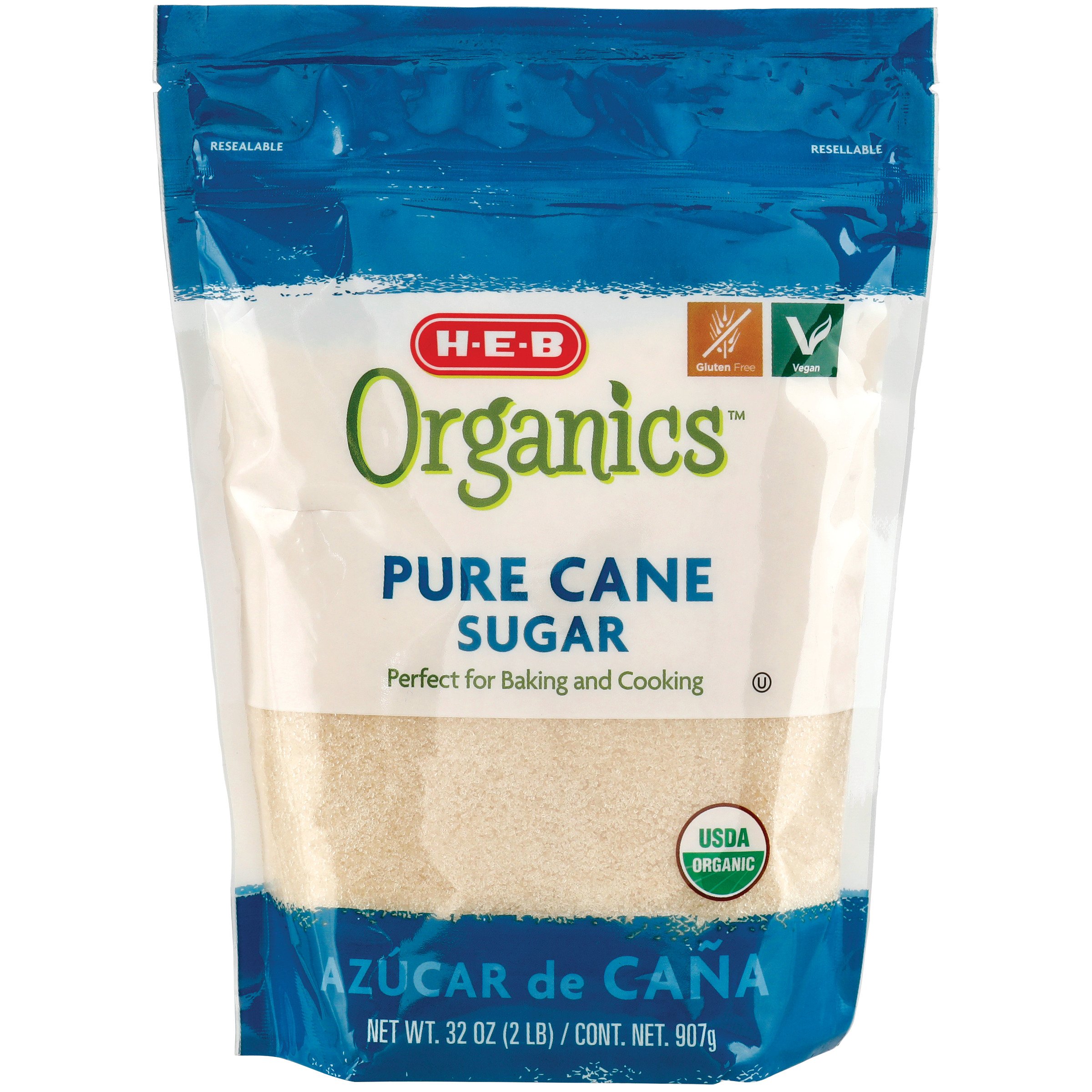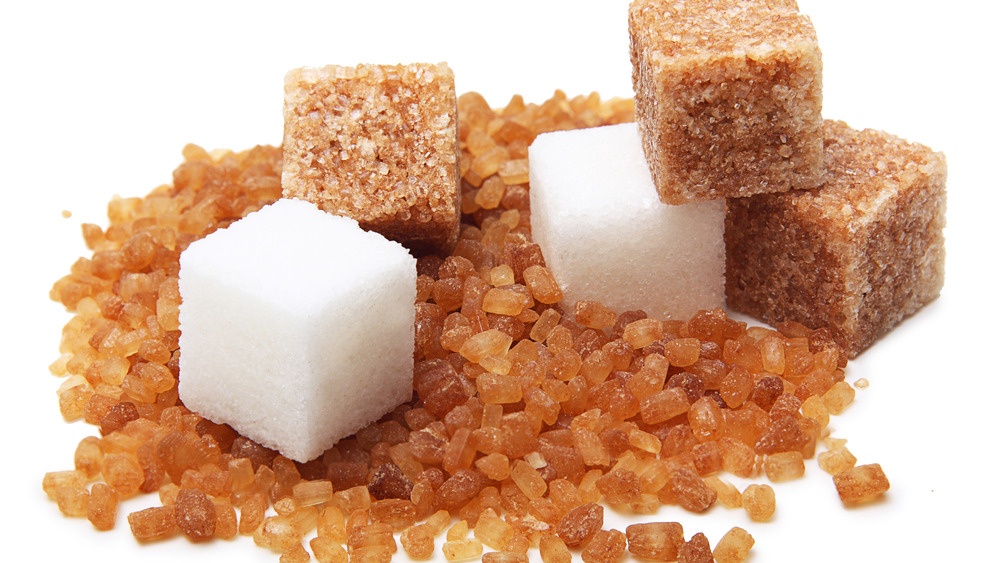The Trip of Cane Sugar Processing: From Harvest to Crystals
A Thorough Introduction of the Health and Economic Effects of Walking Stick Sugar Handling on Local Neighborhoods
Walking stick sugar handling plays a pivotal function in forming the financial landscape of regional areas, supplying work possibilities and boosting supplementary industries. The health implications connected with high sugar consumption can not be overlooked, as they add to climbing prices of obesity and diabetes.
Financial Advantages of Cane Sugar Processing
Walking cane sugar handling supplies considerable economic advantages that prolong beyond the prompt farming industry. The cultivation and handling of sugarcane create countless task opportunities, from farming to production and distribution. This employment generation not just supports neighborhood economic situations yet additionally fosters area advancement by offering stable revenue sources for family members.
Moreover, the sugar sector promotes ancillary businesses, consisting of transportation, devices supply, and packaging solutions (Cane Sugar Processing). As these fields expand, they add to an extra robust economic structure, improving overall community strength. The export potential of refined walking stick sugar further magnifies economic benefits, positioning areas as affordable gamers in global markets
Investment in contemporary processing facilities can cause raised performance and effectiveness, therefore reducing waste and enhancing resource use. This change not just benefits the local economic climate but additionally supports sustainability initiatives by reducing ecological influences.
Moreover, the earnings created from cane sugar processing can be reinvested in neighborhood framework, education and learning, and medical care, advertising holistic community growth. In general, the economic advantages of walking stick sugar processing are diverse, supplying a structure for sustaining success in farming regions.
Wellness Threats Related To Sugar Usage
Extreme sugar intake postures substantial health and wellness threats that warrant serious focus. High consumption of included sugars, specifically from refined foods and drinks, has been linked to numerous wellness issues. Among one of the most pressing concerns is excessive weight, as sweet diets add to a boosted calorie consumption without supplying necessary nutrients. This extra can result in metabolic disorders, consisting of type 2 diabetes, which has actually ended up being progressively prevalent in both grownups and kids - Cane Sugar Processing.
Furthermore, high sugar intake is related to heart disease. Elevated blood sugar degrees can result in insulin resistance, a precursor to numerous heart-related concerns. In addition, sugar can have damaging impacts on oral health and wellness, resulting in tooth cavities and gum illness, as microorganisms in the mouth flourish on sugar, generating acids that erode tooth enamel.
In addition, emerging research study recommends a possible link in between high sugar intake and mental health problems, such as clinical depression and anxiety. As neighborhoods face these health dangers, it comes to be important to promote recognition and urge much healthier dietary choices. Resolving sugar intake is essential not only for private wellness but also for the overall well-being of regional neighborhoods, stressing the demand for detailed public health strategies.
Environmental Impacts of Sugar Manufacturing
Frequently overlooked in discussions about sugar's effects is the significant environmental impact of sugar manufacturing. The growing of sugarcane often necessitates comprehensive land use, resulting in deforestation, loss of biodiversity, and interruption of regional ecological communities. The conversion of woodlands and wetlands right into sugar plantations can result in habitat devastation, harmful various types and changing ecological balance.
Additionally, sugar production is resource-intensive, consuming considerable amounts of water for irrigation. This can lead to depletion of local water resources, negatively impacting both farming techniques and community access to clean water. Furthermore, using chemical plant foods and pesticides in sugarcane farming can add to dirt degradation and water contamination, as overflow from these chemicals enters neighboring rivers and lakes, affecting aquatic life and human health.
The ecological footprint reaches the processing phase, where power consumption and waste generation further worsen environmental concerns. Air contamination from burning sugarcane areas, together with greenhouse gas emissions, add to climate modification. Because of this, the ecological additional info ramifications of sugar manufacturing warrant serious consideration, prompting stakeholders to adopt even more sustainable techniques to reduce these adverse results on regional ecosystems and neighborhoods.
Job Development and Area Advancement
The ecological challenges presented by sugar manufacturing are frequently counteracted by its potential for economic advantages, especially in work creation and neighborhood growth. The cane sugar market offers as a significant source of work in numerous backwoods, giving tasks throughout various skill levels, from agricultural labor to handling and circulation roles. This employment not only supports specific families however additionally contributes to the general financial vitality of regional areas.
Moreover, the this contact form facility of sugar handling centers boosts secondary organizations, such as transportation services, devices supply, and maintenance suppliers. As these businesses flourish, they create additional work and reinforce regional economic climates. The profits produced from the sugar market additionally brings about raised tax obligation revenues, which can be reinvested into social work such as medical care, facilities, and education and learning advancement.
Additionally, the sugar industry usually involves in community advancement efforts, such as sustaining regional colleges and health and wellness programs, therefore boosting the lifestyle for homeowners. By promoting solid community connections and promoting economic development, the walking stick sugar handling industry plays an essential function in uplifting regional populaces, making it a necessary component of sustainable advancement strategies in sugar-producing areas.
Harmonizing Health And Wellness and Economic Growth
In navigating the complexities of walking cane sugar handling, a vital difficulty lies in balancing health and wellness factors to consider with financial growth. The sugar market significantly contributes to local economies by producing tasks, boosting related markets, and increasing tax incomes. Nevertheless, the wellness implications related to extreme sugar usage can bring about chronic diseases such as weight problems, diabetic issues, and cardiovascular concerns, which can concern public wellness systems and decrease workforce efficiency.

In addition, regulative structures can play an essential duty in guiding market techniques towards more lasting and health-conscious techniques. By fostering collaboration between government bodies, health and wellness companies, and the sugar industry, communities can navigate the dichotomy of wellness and economic growth, making sure that the advantages of walking stick sugar processing are equitably shared while focusing on public wellness.
Verdict
Finally, the handling of cane this hyperlink sugar presents both significant economic benefits and remarkable health risks for neighborhood neighborhoods. While it promotes task development and promotes regional growth, the associated wellness worries, especially concerning weight problems and diabetic issues, require a cautious balancing act. By advertising accountable usage and investing in neighborhood education and lasting methods, it is possible to maximize financial advantages while reducing adverse health and wellness impacts, thus ensuring a much healthier future for local populations.
In addition, sugar can have damaging impacts on dental health, resulting in dental caries and periodontal condition, as microorganisms in the mouth grow on sugar, generating acids that wear down tooth enamel.
Resolving sugar usage is vital not only for individual health yet additionally for the general health of local communities, highlighting the need for thorough public health and wellness techniques.
Frequently ignored in discussions regarding sugar's implications is the considerable ecological effect of sugar manufacturing. The health ramifications linked with extreme sugar intake can lead to chronic illness such as obesity, diabetes mellitus, and cardiovascular problems, which can worry public health systems and reduce workforce productivity.
